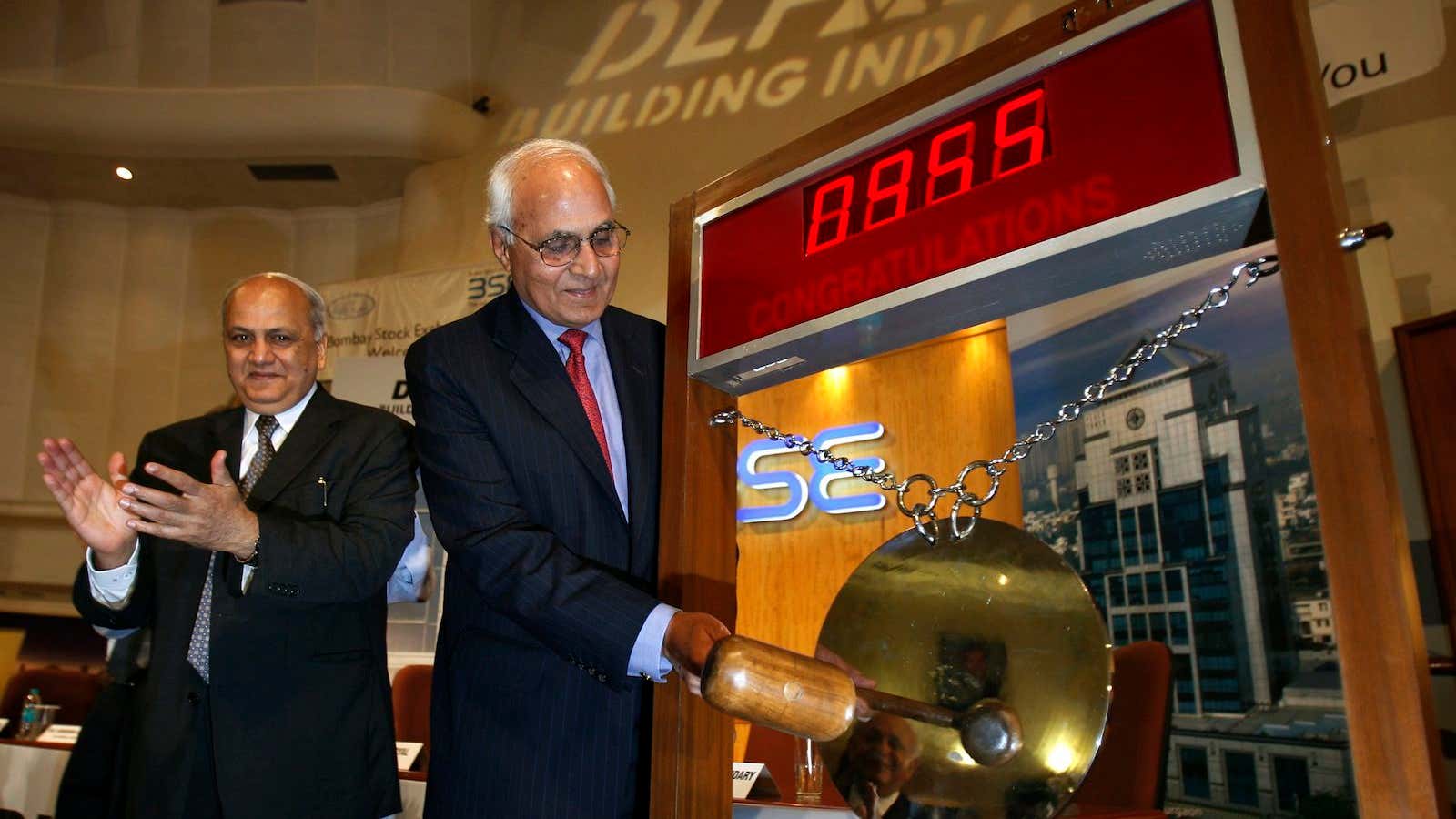This post has been corrected.
India’s capital markets regulator has barred (pdf) DLF, one of India’s largest real estate developers (market cap: $4.27 billion) and the builder of much of modern Gurgaon, from participating in capital markets for the next three years for “misleading and defrauding investors” in the securities market.
The Securities Exchange Board of India (SEBI) order dated 10 October has barred the company, along with six of its senior executives.
The executives include DLF’s billionaire executive chairman K.P. Singh, his son and vice chairman Rajiv Singh, managing director T.C. Goyal, whole time director Pia Singh, executive director (legal) Kameshwar Swarup and CFO Ramesh Sanka.
SEBI’s orders are in response to two complaints filed by one Kimsuk Krishna in 2007, who alleged that a DLF-owned company cheated him. That was the year when DLF came out with its IPO in 2007, worth Rs9,187.5 crore ($1.50 billion).
Sinha had filed two complaints with SEBI in the same year, accusing a company known as Sudipti Estates of cheating him of Rs34 crore ($5.55 million) in a transaction related to a land purchase. He said the only two shareholders of Sudipti Estates were DLF Estate Developers and DLF Home Developers—both wholly owned subsidiaries of DLF.
Sinha filed a petition in the Delhi High Court and the court ordered SEBI to investigate the matter in 2010. In the show cause notice sent by SEBI to DLF, the regulator contends DLF failed to notify SEBI about their shareholdings in Sudipti and two other companies—Shalika Estate Developers and Felicite Builders & Construction—in the IPO documents.
DLF denies these allegations, telling the markets regulator that it “has not suppressed any material information or fact leading to misstatement in the red herring prospectus/Prospectus so as to mislead or defraud the investors whether actively, knowingly or otherwise.”
The regulator wasn’t convinced.
“In this case, I have already found that the process of share transfer of three subsidiaries of DLF in Sudipti, Shalika and Felicite was through sham transactions,” SEBI member Rajiv Kumar Agarwal wrote in his order. ”I am satisfied that the violations as found in this case are grave and have larger implications on the safety and integrity of the securities market,” he added.
DLF declined to offer an immediate comment to Quartz.
This is the latest in a string of legal woes for the realtor. In August, the Competition Commission of India asked DLF to pay Rs630 crore ($103 million) in penalties for unfair business practices. More recently in September, Punjab and Haryana High Court had scrapped the sale of 351 acres of land which was purchased by DLF for Rs1, 703 crore ($278 million) in an auction.
Correction (October 15, 2014): An earlier version of this story incorrectly mentioned that G.S. Talwar, non-executive director of DLF, was among the DLF executives banned by SEBI from participating in capital markets. Talwar’s name was mentioned in the SEBI order dated October 10 as one of the noticees, but was exonerated by the market regulator.




